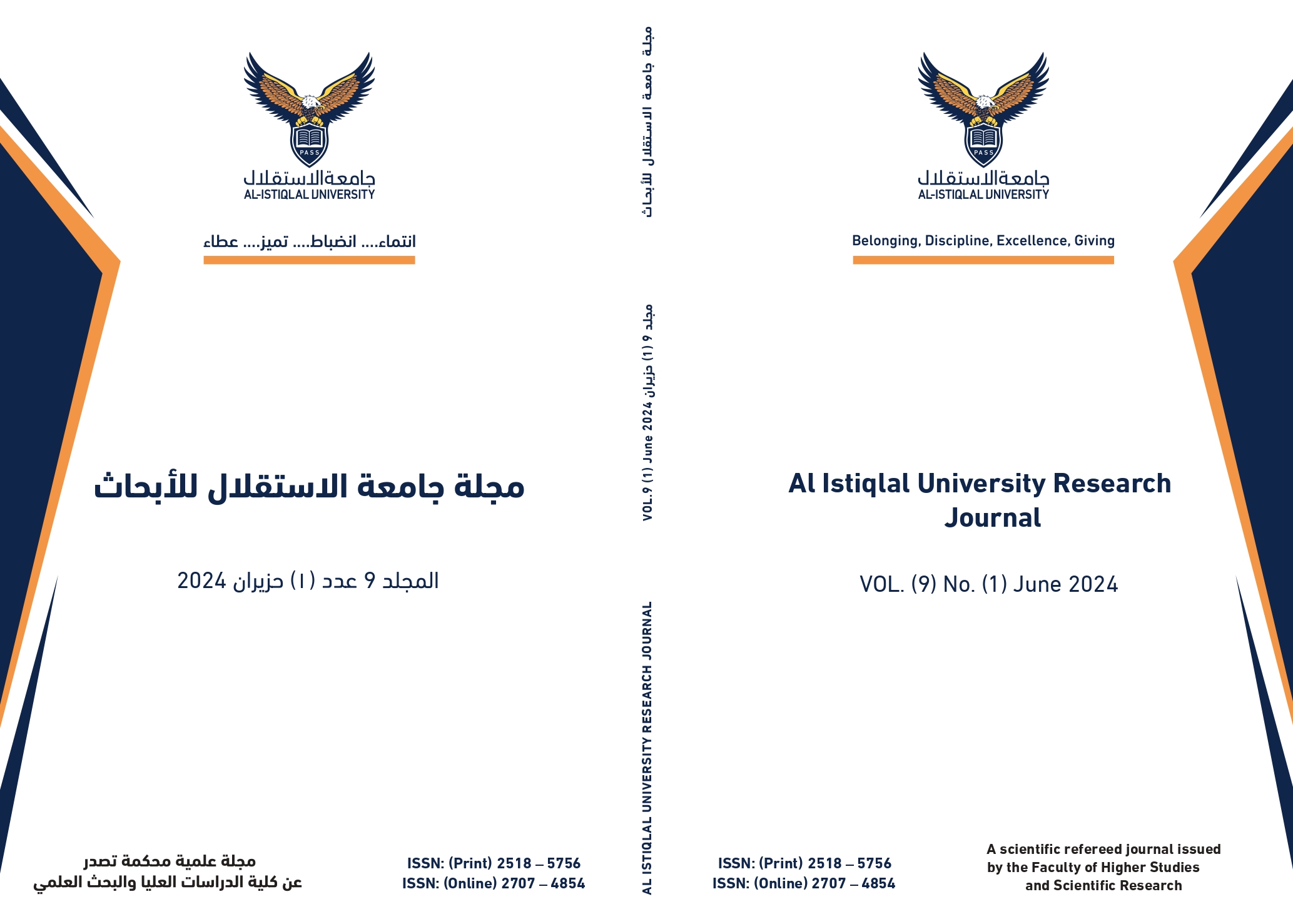Abstract
This study aimed to identify the aggravating circumstances in drug trafficking crimes in Palestinian legislation from a comparative analytical perspective with Kuwaiti legislation and the United Nations Convention on Drugs. The scope of the research was represented by the Palestinian Decree Law No. (18) of 2015 regarding combating narcotic drugs and psychotropic substances, and Law No. 74 of 1983. Kuwait regarding combating drugs and regulating their use and trafficking, and the United Nations Convention on Narcotic Drugs and Psychotropic Substances of 1988, In his study, the researcher used the analytical approach and the comparative approach, as the aggravating circumstances in drug trafficking crimes were linked to circumstances related to the offender, such as repeat offenders, the offender’s honesty, participation or use of others, and circumstances related to the crime related to the results of committing the crime, the place of committing the crime, and the means of committing it, The study reached a set of results, the most prominent of which is that the Palestinian legislator is consistent with the United Nations Convention in many aggravating circumstances in drug trafficking crimes, and that the Palestinian legislator is alone in considering the result of the crime as an aggravating circumstance in drug trafficking crimes, and the Palestinian legislator referred to correction and rehabilitation centers and places of imprisonment. Reserves are places where the penalty is severe if the crime is committed, Finally, the study recommended a set of recommendations, the most prominent of which is amending the text of Article 22/2 of the decree-law regarding the control of drugs and psychotropic substances by using the term public function and the connection of the crime to this function, and amending the text of Article 22/3 of the decree-law by using the term exploitation instead of the term used because the term exploitation. It refers to the situation in which others are exploited in a better way, and amending the text of Article 22/3 of the decree-law by restricting others to minors only, due to their lack of awareness, awareness, and discrimination, while other groups are capable of discrimination and cognition, and deleting the text of Article 22/4 of the decision. By law, which relates to the consequence of committing the crime as an aggravating circumstance, and if it is maintained, the concept of serious harm to health must be defined.

This work is licensed under a Creative Commons Attribution-ShareAlike 4.0 International License.
Copyright (c) 2024 Al Istiqlal University Research Journal




